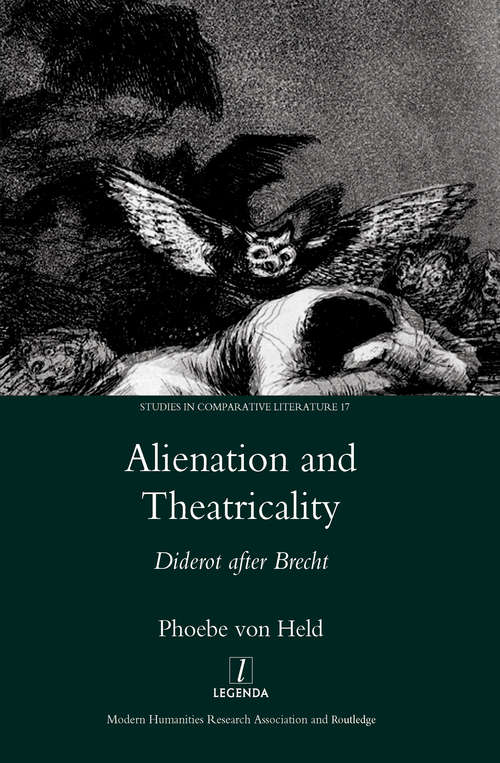Alienation and Theatricality: Diderot After Brecht
By:
Sign Up Now!
Already a Member? Log In
You must be logged into Bookshare to access this title.
Learn about membership options,
or view our freely available titles.
- Synopsis
- Alienation (Vefremdung) is a concept inextricably linked with the name of twentieth-century German playwright Bertolt Brecht - with modernism, the avant-garde and Marxist theory. However, as Phoebe von Held argues in this book, 'alienation' as a sociological and aesthetic notionavant la lettre had already surfaced in the thought of eighteenth-century French philosopher and writer Denis Diderot. This original study destabilizes the conventional understanding of alienation through a reading ofLe Paradoxe sur le comedien, Le Neveu de Rameau and other works by Diderot, opening up new ways of interpretation and aesthetic practices. If alienation constitutes a historical development for the Marxist Brecht, for Diderot it defines an existential condition. Brecht uses the alienation-effect to undermine a form of naturalism based on subjectivity, identification and illusion; Diderot, by contrast, plunges the spectator into identification and illusion, to produce an aesthetic of theatricality that is profoundly alienating and yet remains anchored in subjectivity.
- Copyright:
- 2011
Book Details
- Book Quality:
- Publisher Quality
- ISBN-13:
- 9781351577021
- Related ISBNs:
- 9781315097411, 9781906540128, 9781906540128
- Publisher:
- Taylor and Francis
- Date of Addition:
- 03/11/20
- Copyrighted By:
- Routledge
- Adult content:
- No
- Language:
- English
- Has Image Descriptions:
- No
- Categories:
- Nonfiction, Language Arts, Communication, Foreign Language Study
- Submitted By:
- Bookshare Staff
- Usage Restrictions:
- This is a copyrighted book.
Reviews
Other Books
- by Phoebevon Held
- in Nonfiction
- in Language Arts
- in Communication
- in Foreign Language Study
